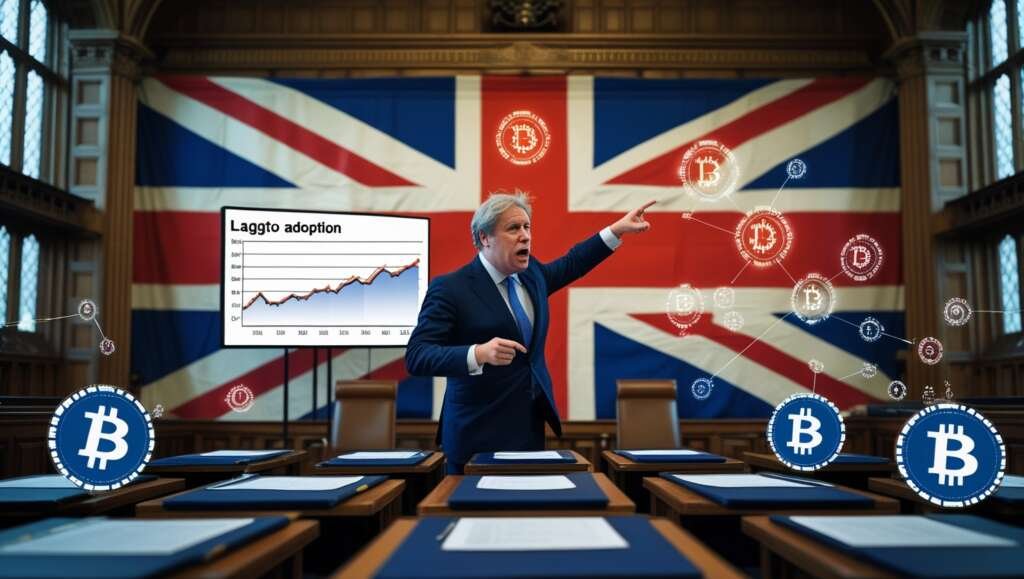Former UK Chancellor George Osborne has criticized the Labour government’s cautious stance on crypto, warning that Britain is falling behind the US, EU, and Asia. The former chancellor’s hard-hitting opinion has caused an uproar in the U.K. council, as well as amongst crypto enthusiasts who completely agree with his facts.
Osborne, who serves as Coinbase’s Global Advisory Council, further accused the current government of “regulatory inertia,” urging swift action to avoid missing a historic opportunity. He likened the current crypto shift to the 1980s “Big Bang” financial reforms.
Osborne’s Full Statements on the U.K.’s Criticisms of Crypto Adoption
George Osborne said the U.K. is missing a second wave of crypto innovation due to strategic complacency and slow policies. He compared the country’s market to the United States, Singapore, Hong Kong, and Abu Dhabi, with a comprehensive legal framework for cryptocurrency and blockchain.
The former chancellor said the onboarding procedures in the U.K. are outrageous, and banking restrictions are impeding adoption. He said British retail investors can’t access Bitcoin ETFs, even when U.S. investors are ready to buy. According to Osborne, the lack of clear regulations for crypto assets is causing the U.K. to lag behind countries with progressive frameworks, therefore making them unable to compete.
Despite multiple pledges and promises to revamp the crypto landscape by both Conservative and Labor leaders, no real progress has been made. So far, the government has formed a consultation on reforming the Financial Services and Markets Act (FSMA) to include digital currencies and stablecoins, and submitted the Property (Digital Assets) Bill to Parliament. The bill will legally define digital assets as property.
What Osborne’s Criticism Means
Osborne’s statements wield significant influence, having served as a Chancellor (2010-2016) and currently serving as a member of the Coinbase advisory board. His comments reflect the current U.K. crypto landscape and its failure to capitalize on the potential of blockchain as a Fintech leader. His statements aren’t just mere criticism – they are infallible facts.
From his statement where he berates policy delay and implementation, Osborne was painting a picture of institutional hesitation, from the Treasury and FCA to the Bank of England. In his view, these financial institutions and regulators are afraid of exploring the growth opportunities in blockchain. He framed this hesitation as strategic negligence towards innovation.
Comparing the U.K. to countries like Singapore and Abu Dhabi highlights the major steps they have taken to welcome tokenization and blockchain. Osborne argues that with the U.K. failing to capitalize on the growth opportunities presented by Blockchain, it risks falling behind the pecking order as a leader in the Fintech space. Even former Chancellor Philip Hammond has vented her frustration over the slow pace of adoption, warning that a lack of action could drive crypto talent and business to rival countries.
What Should Happen Next?
Regulators and policymakers must create concrete timelines to implement regulations around stablecoins, custody, trading, and issuance. The time to act now; further delay could be dangerous, as Philip Hammond complained. Without actions, U.K.-based startups and even exchanges may become frustrated and relocate to crypto-friendlier locations.
However, the U.K. must balance regulations with innovations, just as the United States, Hong Kong, and France are doing. Implementing stringent rules may stifle innovation and drive away startups and crypto businesses. Treasury, the FCA, and the Bank of England must work together to create a harmonized approach that aligns with MiCA’s regulations to foster cross-border financial transactions, given that the U.K. is no longer part of the EU.
Quick passage of crypto regulations, such as the stablecoin framework, is necessary. It should be done fast and effectively, with concerned stakeholders and financial institutions involved.




